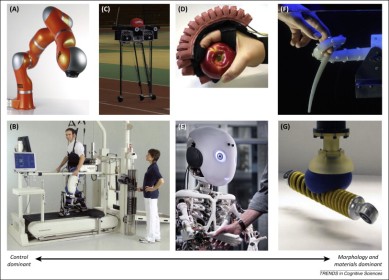On January 30th I’ll be presenting joint work with Aaron Sloman (“Revisionism about Qualia: Prospects for a Reconciliation Between Physicalism and Qualia”) at a conference in Antwerp on Dan Dennett’s work in philosophy of mind (sponsored by the Centre for Philosophical Psychology and European Network for Sensory Research). Both Aaron and Dan will be in attendance. I don’t have an abstract of our talk, but it will be based on a slimmed-down version of our 2016 paper (with some additions, hopefully taking into account some recent development’s in Dan’s position on qualia).
The official deadline for registration has passed, but if you are interested in attending perhaps Bence Nanay, the organiser, can still accommodate you? Below please find the list of speakers and original calls for registration and papers.
Centre for Philosophical Psychology and European Network for Sensory Research
Call for registration
Conference with Daniel Dennett on his work in philosophy of mind. January 30, 2018.
Speakers:
- Daniel Dennett (Tufts)
- Elliot Carter (Toronto)
- Ron Chrisley and Aaron Sloman (Sussex)
- Krzysztof Dolega (Bochum)
- Markus Eronen (Leuven)
- Csaba Pleh (CEU)
- Anna Strasser (Berlin)
This conference accompanies Dennett’s deliverance of the 7th Annual Marc Jannerod Lecture (the attendance of this public lecture is free).
Registration (for the conference, not the public lecture): 100 Euros (including conference dinner – negotiable if you don’t want conference dinner). Send an email to Nicolas Alzetta (nalzetta@yahoo.com) to register. Please register by December 21.
Workshop with Daniel Dennett, January 30, 2018
Call for papers!
Daniel Dennett will give the Seventh Annual Marc Jeannerod Lecture (on empirically grounded philosophy of mind) in January 2018. To accompany this lecture, the University of Antwerp organizes a workshop on Dennett’s philosophy of mind on January 30, 2018, where he will be present.
There are no parallel sections. Only blinded submissions are accepted.
Length: 3000 words. Single spaced!
Deadline: October 15, 2017. Papers should be sent to nanay@berkeley.edu


 A paper by myself and Aaron Sloman, “
A paper by myself and Aaron Sloman, “ sday, December 1st, at 13:00 in Freeman
sday, December 1st, at 13:00 in Freeman